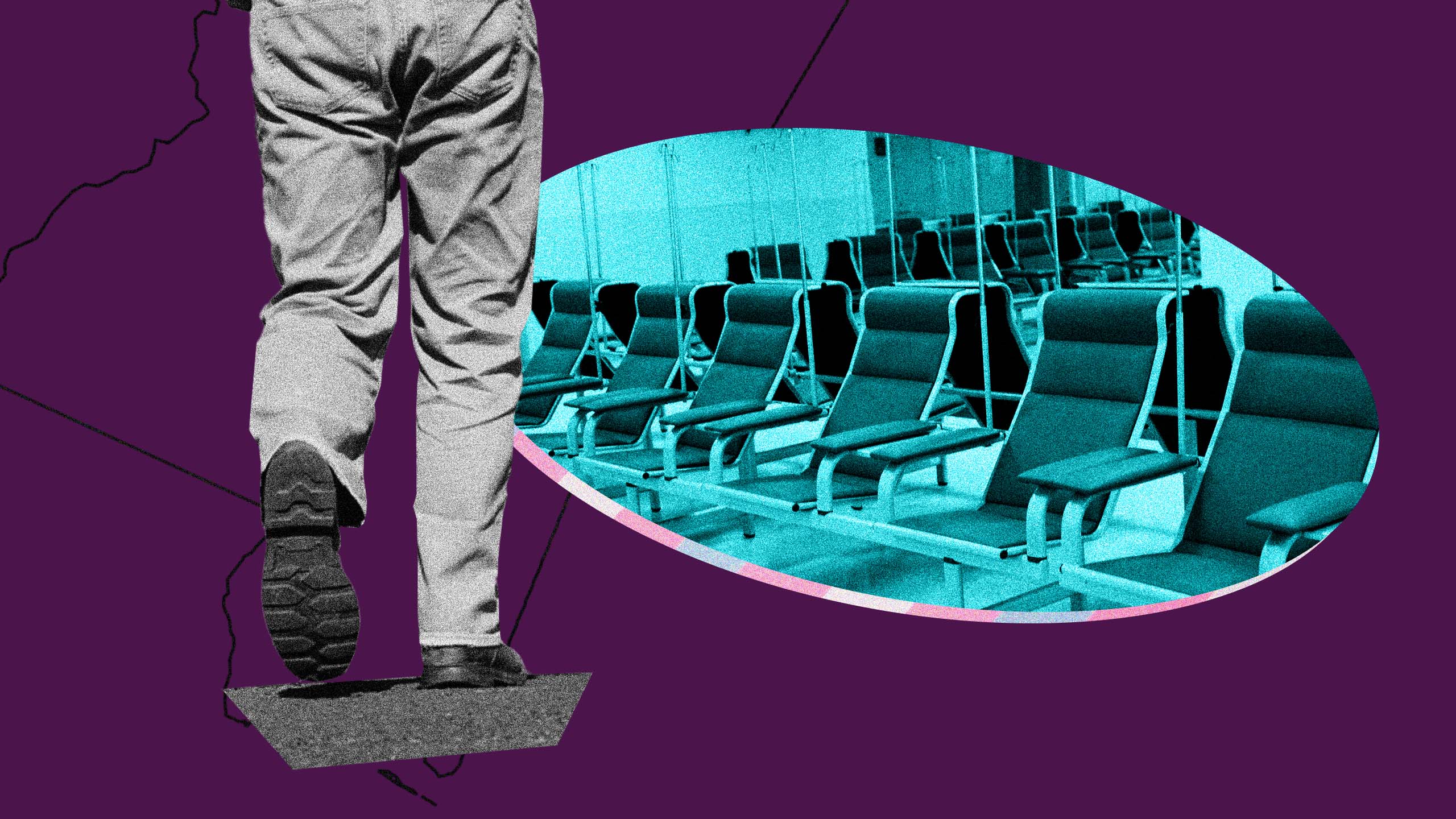Ray knew that the Mississippi state legislature was going to force him to leave his home months before it happened. By the time that HB 1225—a bill that prevents minors like Ray from getting transition-related medical care—passed at the end of June, he and his family had seen the writing on the wall and made a plan: his father got a work transfer to Virginia, where Ray would join him in August, once his last testosterone vial from before the ban ran out.
“The priority is to get Ray out,” says Ray’s mother, Katie Rives. “We’ll figure out the rest later.”
Ray had always planned to leave the state, eventually. He’d just rather have done it when he was a bit older, and on his own terms. Instead, the 17-year-old will be finishing high school out-of-state.
“When I got to college, I was wanting to go out of state and get away from here. I wanted to experience life somewhere else,” Ray says. “But this is my home. I’ve lived most of my life here. I wanted to … go explore the world on my own terms. But then this happened, and I’m being forced to leave.”
Ray, his parents, and his brothers are now among a number of Mississippi families navigating an impossible choice between their homes and their medical care. According to a recent Data for Progress survey, 43 percent of American trans adults have considered moving to a different state due to anti-trans legislation. And in states like Mississippi, young people in particular are being targeted. The bill pushing Ray out of his home state, known as the “Regulating Experimental Adolescent Procedures (REAP) Act” criminalizes all transition-related medical care for those under age 18.
Many families aren’t in the same position as Ray’s. MaryClare StFrancis, whose 15-year-old daughter Emily is trans, can’t leave the state at all.
“For us, it’s not possible. And I’m glad, from what I’ve seen, that some of the other families … are going to be able to do that,” StFrancis says. The parent of four children, three of whom are disabled, StFrancis doesn’t see how she could possibly fund a trip out of state to pick up hormones, much less finance the uprooting of her entire family. For now, she said, she’s researching desperately to try and find some way for her daughter to continue accessing estrogen and spironolactone—or search for similar herbal remedies or equivalent drugs if that’s not possible.
Medical providers like Lee Pace, who runs a gender-affirming medical clinic called Spectrum: The Other Clinic, are also in a difficult position: while many would like to provide transition care, they now aren’t able to without risking their medical licenses.
“I warned my youth patients that I believed this would pass,” Pace says. They started working to find their youth patients providers out of state as fast as they could. The University of Mississippi’s LGBTQ+ clinic, which was the largest in the state, stopped serving trans minors due to political pressure before HB 1225 passed—and at the end of June, shut down altogether. That left Pace’s clinic as one of only a few in the state providing gender affirming care to anyone. In order to keep operating, though, they’ve been forced to cease all services to trans minors—including those that are a far cry from surgery, like a youth support group. While mental health care for trans youth is still technically legal in the state, Pace’s lawyer believed that having that care take place in the same building where adults receive hormone replacement therapy would be considered illegal.
“Our lawyer said we’re not allowed to have any youth even walk in the building,” Pace says. Under the new law, that would “fall under aiding and abetting.” The support group “might not have been very well attended anyway,” though: people are scared to show up, these days. Once or twice since the bill’s passage, Pace has spotted a “lifted-up truck with a confederate flag” circling the clinic parking lot.
“I carry a pistol,” Pace says grimly. “We get a lot of death threats.” He said the amount of anti-trans rhetoric has increased since the bill passed. “Now, people don’t feel bad accosting transgender people. They don’t feel bad firing them … a number of my adult patients have lost their jobs.”
Rives and StFrancis are both quick to point out that their immediate communities are more supportive than the bleaker news out of Mississippi might indicate.
“We’ve created a bubble. Our friends, the people at our church, they’re all like us,” Rives explains. But, as Pace mentioned, the rest of their region outside the bubble has become more visibly transphobic since this law passed. Emily doesn’t like to go outside alone for fear of being harassed.
Many trans adults in Mississippi are also holding their breath, wondering what the next legislative session—which begins in January 2024—will bring. Thirty-one anti-LGBTQ2S+ bills were introduced in last year’s legislative session, though the ban on healthcare for trans youth was the only one of those bills that passed. Other bills, such as those limiting access to LGBTQ2S+ books, may be reintroduced next session.
“Of course my adult patients were terrified thinking that they will have an adult bill right around the corner,” Pace says. His overall number of patients—young and old—has decreased, as people leave the state or prepare for the possibility of losing healthcare. For now, though, Pace’s clinic is staying open, and doing what they can.
And those kids who can, like Ray, are leaving the state, with no plans to return—at least not permanently. In Virginia, he says, there are three different trans clinics for him to choose from.
“I’m excited to go up north,” Ray says. “But I’m still being forced out of my home at the end of the day.”


 Why you can trust Xtra
Why you can trust Xtra


